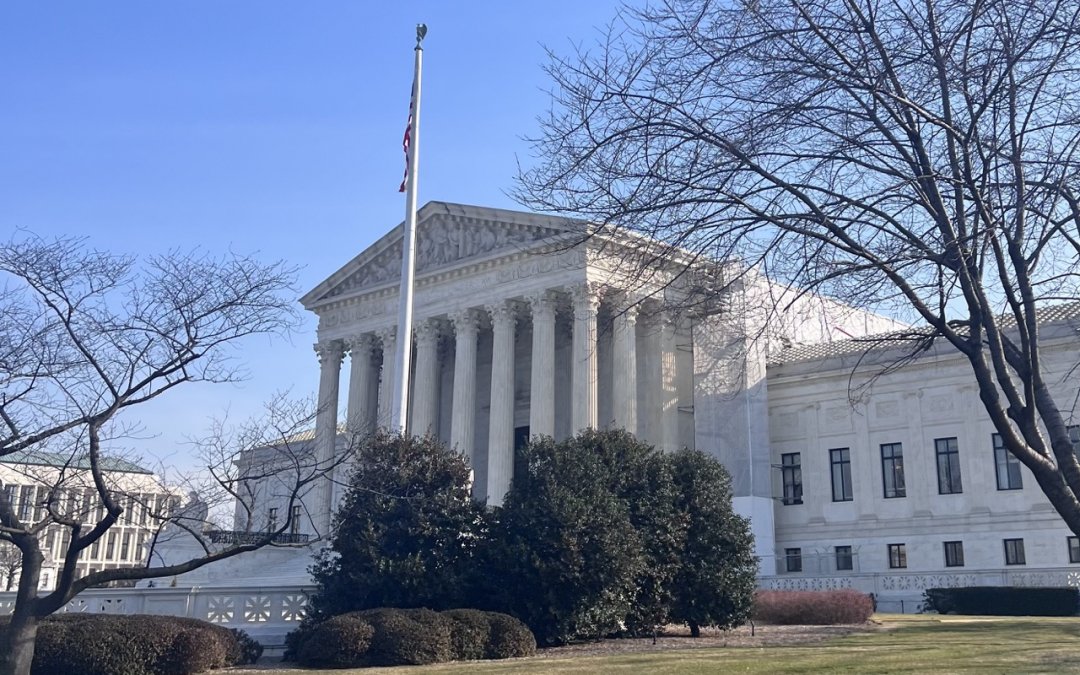WASHINGTON – When is it too late for the government to provide notice that they are seeking forfeiture in criminal cases? That was the question at the heart of a Supreme Court hearing on Tuesday.
The case arose after a federal jury in New York convicted Louis McIntosh in 2013 for violating multiple robbery and firearm offenses. A federal district court ordered him to forfeit $75,000 and a BMW he purchased with robbery funds.
At the sentencing, the government was instructed to submit a written order within a week, as per the Federal Rules of Criminal Procedure. The government failed to meet that time frame, instead submitting the order three years later for the money and car.
McIntosh sued and the case made its way to the Supreme Court, where the justices had a chance to revisit some of what they handled in their previous appointments to the bench.
“When a preliminary order of [criminal] forfeiture is not entered as it should be prior to sentencing, then the government loses its right to forfeiture,” McIntosh’s attorney, Steven Yurowitz, argued.
Several justices seemed skeptical that the time limits in the criminal code were mandatory.
Referencing her experience as a district judge, Justice Sonia Sotomayor noted that courts are usually flexible. “They set a fixed deadline. Something you can know and meet without discretion being involved.”
The Supreme Court has a precedent to rely on: In Dolan v. United States, the high court decided that a restitution order was valid despite it being submitted after the 90-day deadline as spelled out in the Mandatory Victims Restitution Act.
That case “recognized what I’ll call a ‘better late than never’ rule in complying with congressional directives,” Justice Neil Gorsch said.
In that decision, made in 2010, the Supreme Court outlined three types of deadlines: “jurisdictional rules” which are strict and can’t be overlooked; “claims processing rules,” which regulate timing but can be waived; and “time-related directives” intended to keep cases timely but are not absolute.
Justice Ketanji Brown Jackson asked whether the latest case had a deeper procedural error that needed a high court ruling. She pressed Yurowitz on whether a missed jurisdictional deadline should face consequences. He replied that a defendant is subject to sentence even though the government missed its deadline.
Chief Justice John Roberts raised hypotheticals about forfeiture timelines that a defendant could face in their sentencing.
“In this case there was no order entered until three years after,” Yurowitz responded. “Forfeiture is an element of sentencing and there’s an element of finality to it.”
Assistant to the Solicitor General Matthew Guarnieri argued that both the U.S. Appeals Court for the Second Circuit and federal district court offered the defendant notice of the forfeiture, and he had the opportunity to contest it before the sentencing process.
“The second circuit itself established that there was no prejudice to the defendant here,” Guarnieri said.
The justices asked whether they may violate the claim processing rule they set forth.
“I don’t think the court needs to address it,” Guarnieri said. “In general, the rule here contemplates that the court will announce the forfeiture as part of imposing sentence on the defendant and if the court purports to act after sentencing… then we have a harder set of issues.”
A decision in the case is expected to be issued by June.


